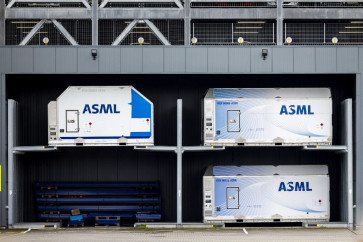Popular Reads
Top Results
Can't find what you're looking for?
View all search resultsPopular Reads
Top Results
Can't find what you're looking for?
View all search resultsSuccessful industrial policy requires industry experts
Like competitive and open markets, industrial policies can play a vital role in boosting productivity and economic growth while helping governments resist undue corporate influence.
Change text size
Gift Premium Articles
to Anyone
A
fter decades on the fringes of economic debate, industrial policy has enjoyed a resurgence in recent years, with the United States, the European Union and China all ramping up their efforts to promote strategic sectors. Even the International Monetary Fund, once a vocal critic of industrial policy, has recently come around to endorsing it.
The reasons for this shift are obvious. The COVID-19 pandemic and geopolitical shocks, especially Russia’s invasion of Ukraine, have disrupted global supply chains, causing shortages and fueling inflation. Meanwhile, transformative breakthroughs in artificial intelligence and clean-energy technologies have triggered a race between major powers like the US and China for dominance in these rapidly evolving fields.
The bigger question is what it will take for today’s industrial policies to succeed. After all, the late-twentieth-century shift toward market-driven economic policies was largely a reaction to the failures of state interventions in the 1970s. Back then, efforts to promote national “champions” often led governments to prop up uncompetitive industries or back technologies that proved obsolete. Why should this time be any different, given that politicians remain highly susceptible to corporate lobbying and influence campaigns?
To avoid repeating the mistakes of the past, policymakers must resist the urge to pick winners, whether specific companies or favored technologies. Sadly, politicians are often dazzled by wealthy and powerful executives, especially in an era marked by staggering fortunes and little-understood innovations like AI.
Compounding this issue, many politicians today are less likely than their predecessors to have direct experience in business. Consequently, they may be insufficiently skeptical of the promises made by companies and executives seeking government support.
This ever-present risk underscores the importance of independent and robust antitrust enforcement. Although independent competition authorities have long been recognized as a safeguard against corporate lobbying, the rise in market concentration across OECD countries over the past few decades suggests that competition rules have been severely under-enforced.
But times have changed. Recognizing the risks posed by increasing market power, US President Joe Biden’s administration adopted a more aggressive antitrust policy, while the EU and the United Kingdom have introduced new legislative frameworks aimed at regulating digital markets. With AI and green technologies set to transform the global economy, sustaining this momentum is crucial to ensuring that new entrants and emerging companies have the space to innovate and grow.



















